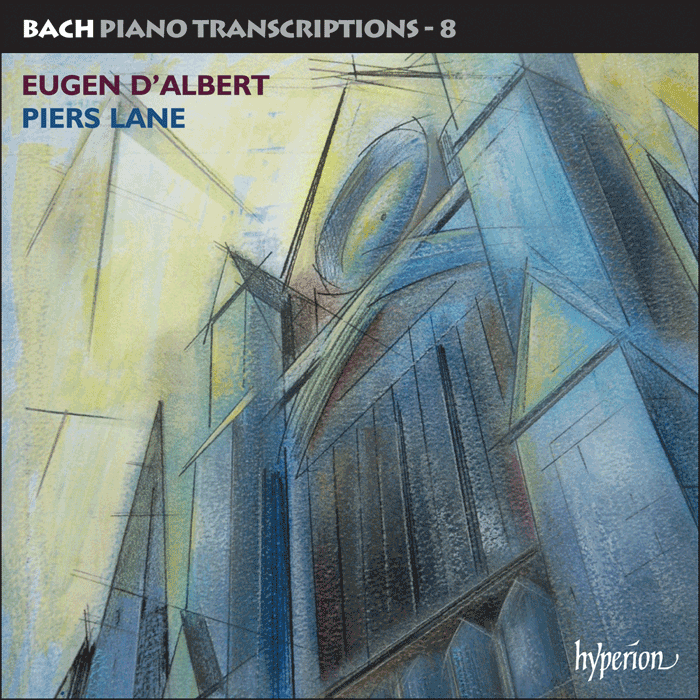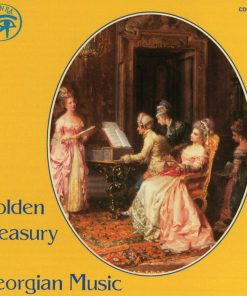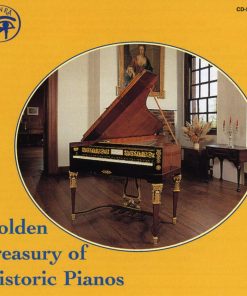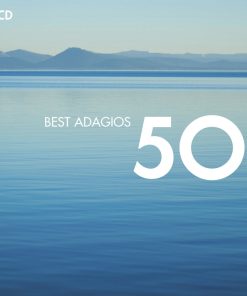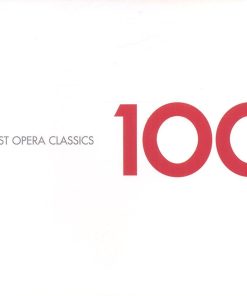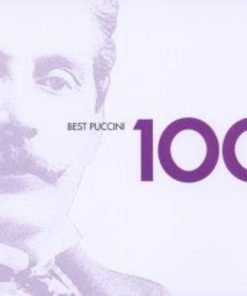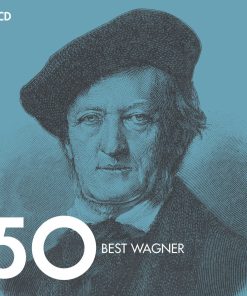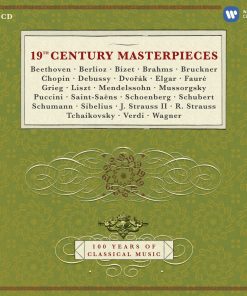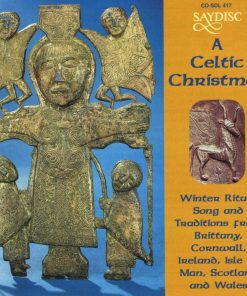Bach: Piano Transcriptions, Vol. 08 Eugen d’Albert – Piers Lane Hyperion
$ 20,99 $ 12,59

1
Passacaglia in C minor BWV582[10’49]arr. Eugen d’Albert (1864-1932)
SIX PRELUDES AND FUGUES
Fantasia and Fugue in C minor BWV537[7’40]arr. Eugen d’Albert (1864-1932)
2
Prelude[4’33]3
Fugue[3’07]Prelude and Fugue in G major BWV541[6’12]arr. Eugen d’Albert (1864-1932)
4
Prelude[2’26]5
Fugue[3’46]Toccata and Fugue in F major BWV540[12’55]arr. Eugen d’Albert (1864-1932)
6
Prelude[7’39]7
Fugue[5’16]Prelude and Fugue in A major BWV536[5’38]arr. Eugen d’Albert (1864-1932)
8
Prelude[1’44]9
Fugue[3’54]Prelude and Fugue in F minor BWV534[8’49]arr. Eugen d’Albert (1864-1932)
10
Prelude[4’29]11
Fugue[4’20]Toccata and Fugue in D minor ‘Dorian’ BWV538[12’12]arr. Eugen d’Albert (1864-1932)
12
Prelude[5’01]13
Fugue[7’11]Prelude and Fugue in D major BWV532[9’42]arr. Eugen d’Albert (1864-1932)
14
Prelude[4’20]15
Fugue[5’22]

Hyperion’s Bach Piano Transcriptions series reaches volume 8, and continues to surprise and delight with a disc containing many first recordings. The controversial figure of Eugen d’Albert was one of the greatest pianists of his day and, although largely forgotten now, a composer of genuinely international renown. A sometime student at the Royal College of Music, d’Albert rejected his British upbringing and nailed his colours to the mast of German music. Bach was an important part of his performing career—and like other great nineteeth-century pianists, d’Albert saw in the monumental scale of the organ works an opportunity to synthesize the works of the Master with the expanded capabilities of the modern piano.
Fast Shipping and Professional Packing
Due to our longstanding partnership with UPS FedEx DHL and other leading international carriers, we are able to provide a range of shipping options. Our warehouse staff are highly trained to pack your goods exactly according to the specifications that we supply. Your goods will undergo a thorough examination and will be safely packaged prior to being sent out. Everyday we deliver hundreds of packages to our customers from all over the world. This is an indication of our dedication to being the largest online retailer worldwide. Warehouses and distribution centers can be located in Europe as well as the USA.
Orders with more than 1 item are assigned processing periods for each item.
Before shipment, all ordered products will be thoroughly inspected. Today, most orders will be shipped within 48 hours. The estimated delivery time is between 3-7 days.
Returns
The stock is constantly changing. It's not entirely managed by us since we are involved with multiple parties such as the factory and our storage. The actual stock can fluctuate at any time. Please understand it may happen that your order will be out of stock when the order is placed.
Our policy is valid for 30 days. If you haven't received your product within 30 days, we're not able to issue either a return or exchange.
You are able to return a product if it is unused and in the same condition when you received it. It must also still remain in the original packaging.
Related products
MUSIC CDS
MUSIC CDS
MUSIC CDS
MUSIC CDS
MUSIC CDS
MUSIC CDS
MUSIC CDS
MUSIC CDS
MUSIC CDS
MUSIC CDS
MUSIC CDS
